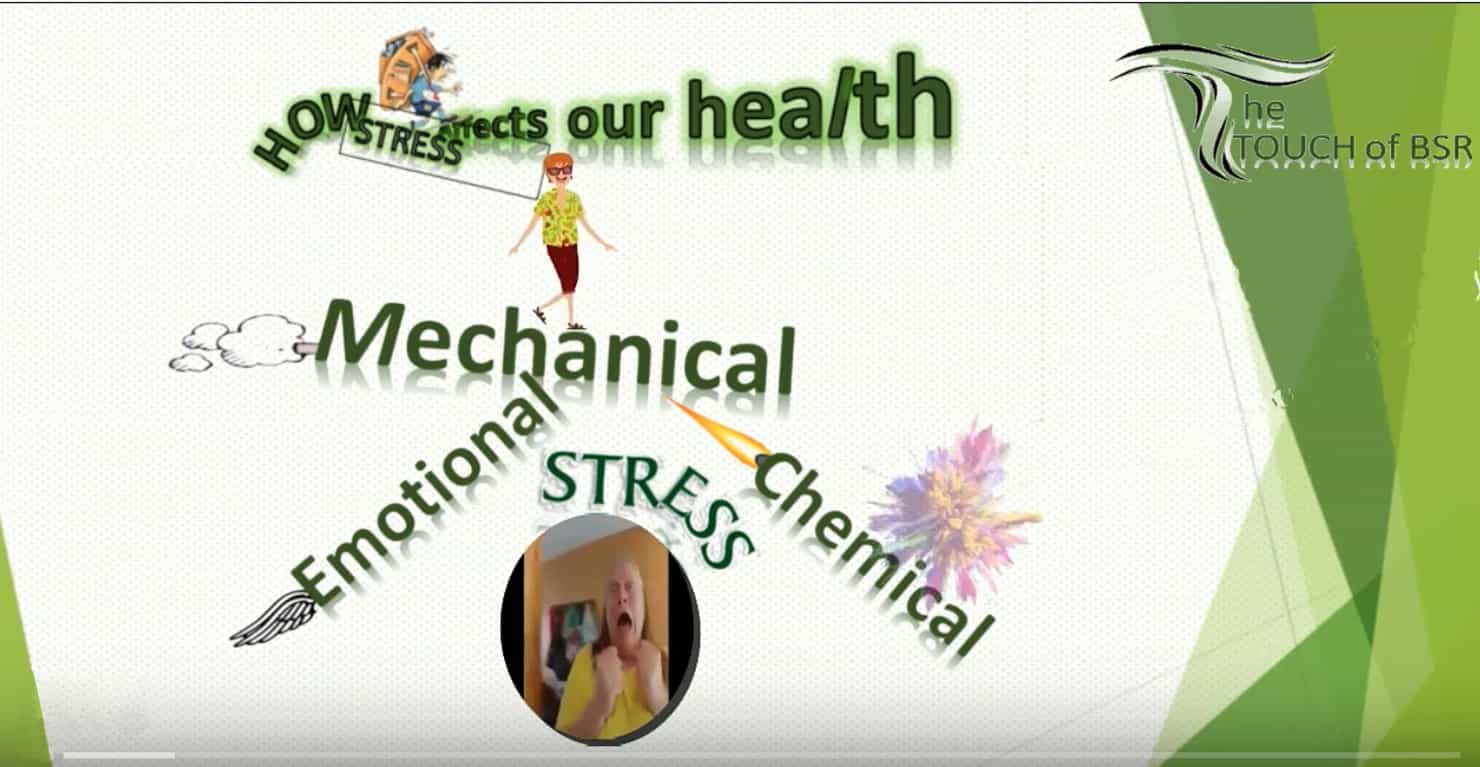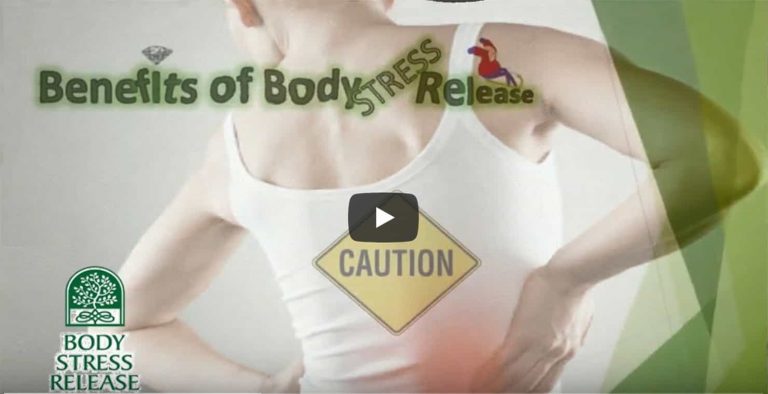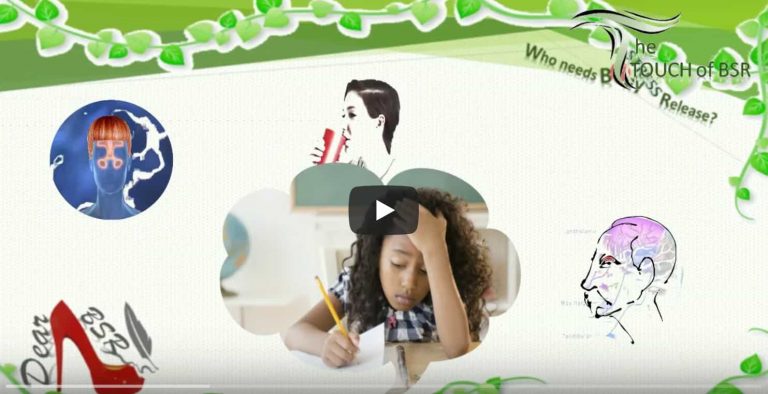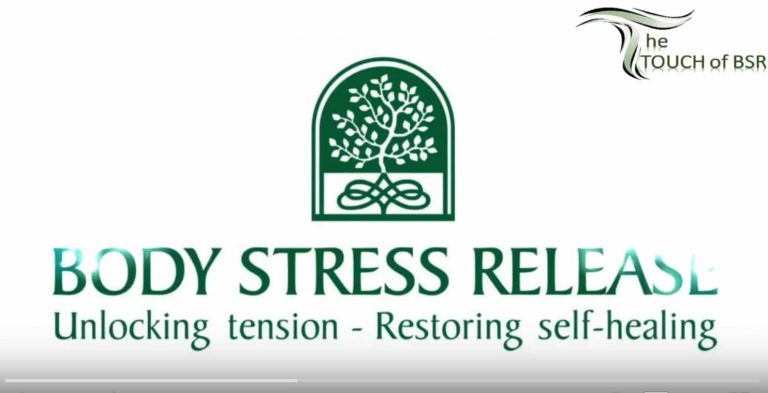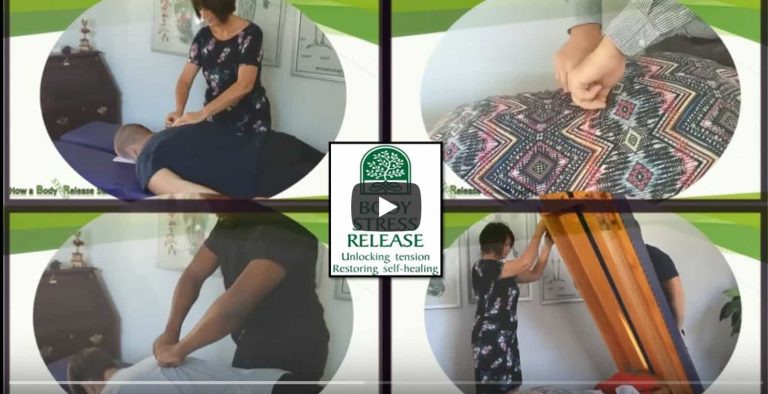BSR YouTubeTranscript – 2
Transcript of YouTube 2/5 – How Stress Affects Our Health
Pins and Needles, Constipation, Heartburn…
Body Stress is stored tension that may lead to back pain, headaches, cramps, sciatica, pins and needles, constipation, heartburn, indigestion, numbness, fatigue, neck pain, joint pain, etc. Tension gets stored in the body as a result of an overload of mechanical, chemical, and emotional stress. Layers of tension compromise our body’s capacity to heal by compressing nerve pathways and narrowing joint spaces. Body Stress Release helps restore your self-healing capacity by releasing these nerve pathways.
Previously we spoke about mechanical, emotional, and chemical stress. Those are our three stresses in life. What is important to note at this point, is that it doesn’t matter which one of these you’re going through, you’re always going to have a muscular reaction to it. In mechanical stress it’s quite obvious because you’re using muscle, but emotional stress is not always that obvious. Try blinking and without using muscle, what happens when you get a fright? Your muscles contract, they go quite tight, and then when you relax again, they let go again. So we’re having this contracting and relaxing of muscle all the time in response to everything that’s going on around you. Even if you hear a noise outside and you don’t really know what that noise is, you’re going to go quite tight until you realise it’s the neighbour’s cat. Then you relax. So in its natural form where it’s contracting and relaxing it is never a problem, it only becomes a problem for us in overload and Oh, my boy! do we like to overload!
What is overload?
Overload is basically when your body is unable to adapt to the intensity of what’s happening around it. It could be falling, it could be an accident like a car accident where you actually break bones. Once you’ve broken a bone, you know that your body has been through a huge amount of tension. It can be the emotional anxiety. If you go through a very, very stressful time and find that your whole body tenses up in response and the reason why they’re doing that, is to protect you. It’s to try and restrict movement in the body to protect you.
This spasming and contraction of muscle is what we call an automatic response reflex. You actually have no control over it, it just happens. Our nerves go from the spinal column to muscle. They go to dermatomes. Those are your patches on your skin the different dermatomes, they’ll run down your body to your legs, up through your arms to your head they also go to help control organs.
What are they actually responsible for?
They communicate between the brain and body, they are also responsible for involuntary and voluntary movement of muscles. Involuntary movement of muscle would be something like, if you touch a hot plate your hand will jump away before you actually realise you’ve burnt your fingers.
Voluntary movement would be deciding you want to put your hand above your head you voluntarily go to do that. Both of those actions take place because of nerves. We have sensory perception so that would be sight and smell, all our five senses. They’re responsible for our breathing. Thank goodness, because otherwise would probably die if we were responsible for that! Heart palpitations and most of our nerves pass through the spinal column, they actually carrying electric impulses which are the messages from the body to the brain, rather like a hose carries water to the flowers.
It is highly possible that if we’ve got all this tight muscle, it could be interfering with the communication of these nerves and in turn, the body’s whole healing capacity starts degenerating and becoming less efficient than it should be.
In a nutshell, that is how stress starts to affect our health.

